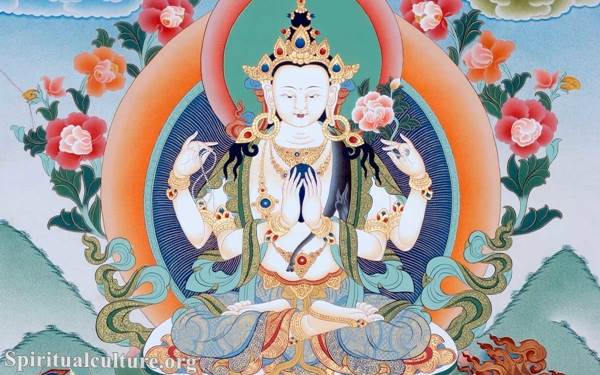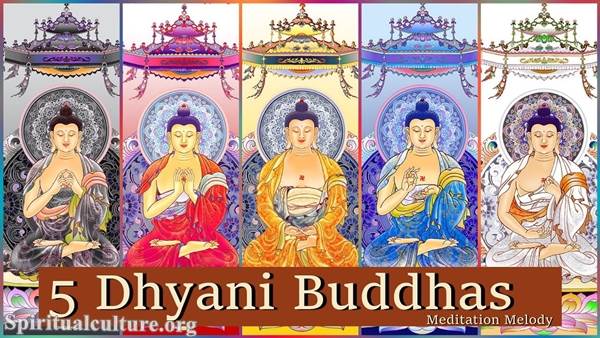Buddhism, one of the world’s oldest spiritual traditions, offers profound wisdom on how to live a meaningful and fulfilled life. At the heart of Buddhism lies the teachings of Siddhartha Gautama, known as the Buddha. His words have inspired countless individuals across centuries, providing guidance on life, relationships, mindfulness, and the pursuit of happiness.
In this article, Spiritual Culture explores some of the most impactful Buddha quotes on life, offering insights into how these teachings can transform our everyday experiences.
The Essence of Buddha’s Teachings on Life
Understanding the Concept of Impermanence
One of the core teachings of Buddhism is the concept of impermanence. Buddha taught that all things in life are transient and constantly changing. This understanding helps us realize that nothing in life is permanent—neither our joys nor our sorrows. Embracing impermanence allows us to live more fully in the present, without clinging to the past or fearing the future.
Impermanence encourages us to appreciate the beauty of each moment, knowing that everything we experience is fleeting. Buddha’s insight on impermanence is captured in his words, “All conditioned things are impermanent—when one sees this with wisdom, one turns away from suffering.” This quote reminds us to find peace in the present moment and to accept life’s changes with grace.
The Role of Suffering in Life
Buddha’s teachings also emphasize the role of suffering in life. He famously stated, “Life is suffering.” While this may seem pessimistic at first, it’s actually a profound recognition of the human condition. Buddha’s insight into suffering, known as dukkha, is not meant to discourage us, but rather to guide us toward understanding the nature of our existence.Suffering arises from our attachments and desires. By acknowledging and accepting suffering as a natural part of life, we can begin to transcend it. Buddha’s teachings show us the path to overcoming suffering through the Eightfold Path, which includes right understanding, right intention, and right mindfulness. These practices help us live a balanced and compassionate life, reducing our suffering and that of others.
Practicing Mindfulness in Daily Activities
Mindfulness, or sati, is a cornerstone of Buddhist practice. It involves being fully present and engaged in the current moment without judgment. Buddha encouraged mindfulness in every aspect of life, from the simplest daily activities to complex emotional experiences.He said, “Do not dwell in the past, do not dream of the future, concentrate the mind on the present moment.” This quote encapsulates the essence of mindfulness—being aware of our thoughts, emotions, and actions as they happen. By practicing mindfulness, we can cultivate inner peace, reduce stress, and gain deeper insights into our true nature.
Inspirational Buddha Quotes
Quotes that Reflect Inner Peace
Inner peace is a central theme in Buddha’s teachings. He believed that true peace comes from within and cannot be found through external circumstances. One of his most famous quotes on inner peace is, “Peace comes from within. Do not seek it without.”
This quote encourages us to look inward for tranquility rather than relying on external factors like wealth, success, or approval from others. By cultivating a peaceful mind, we can navigate life’s challenges with equanimity and resilience.
Quotes Highlighting the Importance of Compassion
Compassion, or karuṇā, is another vital aspect of Buddhist teachings. Buddha emphasized the importance of extending kindness and compassion to all living beings. He said, “Radiate boundless love towards the entire world—above, below, and across—unhindered, without ill will, without enmity.”This quote highlights the boundless nature of compassion, encouraging us to love others unconditionally, without expecting anything in return. Practicing compassion not only benefits others but also helps us develop a deeper connection with ourselves and the world around us.
Quotes on Personal Growth and Development
Buddha’s teachings also offer valuable insights into personal growth and self-improvement. He believed that each individual has the potential to reach enlightenment, but this requires continuous effort and self-discipline. One of his quotes on personal development is, “No one saves us but ourselves. No one can and no one may. We ourselves must walk the path.”
This powerful message reminds us that we are responsible for our own growth and development. While others can guide and support us, the journey toward self-discovery and enlightenment is ultimately ours to undertake. By taking responsibility for our actions and decisions, we can cultivate the wisdom and strength needed to transform our lives.
Relationships and Connections
Buddha Quotes on Love and Attachment
Love and attachment are deeply explored in Buddhism, where the distinction between the two is crucial. Buddha taught that while love is a natural and beautiful emotion, attachment often leads to suffering. He said, “You, yourself, as much as anybody in the entire universe, deserve your love and affection.”
This quote emphasizes the importance of self-love, which is the foundation of all other forms of love. By loving ourselves, we can love others more fully, without clinging or possessiveness. Buddha encouraged us to love without attachment, allowing relationships to flourish in a healthy and balanced way.
The Impact of Kindness in Relationships
Kindness is a fundamental aspect of any meaningful relationship. Buddha’s teachings encourage us to practice kindness in our interactions with others, understanding that every act of kindness has a ripple effect. He stated, “Thousands of candles can be lit from a single candle, and the life of the candle will not be shortened. Happiness never decreases by being shared.”
This quote reflects the idea that kindness and happiness multiply when shared with others. By treating others with kindness and respect, we not only improve our relationships but also contribute to a more compassionate and loving world.
Forgiveness and Letting Go
Forgiveness is a powerful tool for healing and maintaining healthy relationships. Buddha recognized the importance of letting go of grudges and resentment, stating, “Holding onto anger is like drinking poison and expecting the other person to die.”
This quote illustrates the self-destructive nature of holding onto anger and resentment. By forgiving others and letting go of negative emotions, we free ourselves from the burden of bitterness and open the door to peace and reconciliation. Forgiveness allows us to move forward in our relationships and in our lives with a lighter heart.
Mindfulness and Presence
Living in the Moment
Living in the present moment is a central practice in Buddhism. Buddha taught that true happiness and fulfillment can only be found in the here and now. He said, “The past is already gone, the future is not yet here. There’s only one moment for you to live.”
This quote encourages us to focus on the present moment, where life truly unfolds. By living in the moment, we can fully experience life’s richness and beauty, without being distracted by regrets about the past or anxieties about the future.
The Connection Between Thoughts and Reality
Buddha also emphasized the powerful connection between our thoughts and our reality. He believed that our thoughts shape our experiences and that by cultivating positive thoughts, we can create a positive reality. He said, “What we think, we become. What we feel, we attract. What we imagine, we create.”
This quote reminds us of the creative power of our minds. By being mindful of our thoughts and choosing to focus on positivity, we can influence the course of our lives in a meaningful way.
Cultivating a Positive Mindset
Cultivating a positive mindset is essential for living a fulfilling life. Buddha’s teachings provide guidance on how to develop a positive outlook, even in the face of challenges. He said, “A disciplined mind brings happiness.”
This quote highlights the importance of mental discipline in achieving happiness. By training our minds to focus on the positive, we can overcome negative patterns of thinking and create a more joyful and content life.
Life’s Journey and Self-Discovery
The Importance of Self-Reflection
Self-reflection is a key practice in Buddhism, as it helps us gain insight into our true nature and the motivations behind our actions. Buddha encouraged regular self-examination, saying, “Know well what leads you forward and what holds you back, and choose the path that leads to wisdom.”
This quote emphasizes the importance of understanding ourselves deeply, so we can make conscious choices that align with our values and aspirations. Through self-reflection, we can identify areas for growth and take steps toward becoming our best selves.
Exploring the Path to Enlightenment
The path to enlightenment, or nirvana, is the ultimate goal in Buddhism. Buddha’s teachings provide a roadmap for this spiritual journey, guiding us toward awakening and liberation from the cycle of birth and death. He said, “There is no path to happiness: happiness is the path.”This profound quote reminds us that enlightenment is not a distant goal to be achieved but a way of living. By walking the path with mindfulness, compassion, and wisdom, we can experience the joy and peace that come from living in harmony with the truth.
Embracing Change and Transformation
Change is an inevitable part of life, and Buddha’s teachings encourage us to embrace it with an open heart. He said, “The only constant in life is change.” This quote encapsulates the Buddhist view that change is a natural and essential part of existence.
By accepting change, we can let go of our attachment to the past and welcome new experiences and opportunities for growth. Embracing transformation allows us to evolve and adapt, leading to a more fulfilling and dynamic life.
Finding Happiness Through Buddha’s Wisdom
The Pursuit of True Happiness
True happiness, according to Buddha, is not found in material possessions or external achievements but within ourselves. He said, “Happiness does not depend on what you have or who you are. It solely relies on what you think.”
This quote emphasizes the importance of cultivating a positive mindset and finding contentment within. By focusing on our inner world and nurturing our mental and emotional well-being, we can experience lasting happiness that is independent of external circumstances.
Sharing Joy and Happiness with Others
Buddha also taught that sharing our happiness with others is a key component of a joyful life. He said, “When you make others happy, you are also making yourself happy.” This quote reflects the interconnectedness of all beings and the idea that true happiness is amplified when it is shared.
By spreading joy and uplifting others, we contribute to a more positive and compassionate world. Acts of kindness and generosity not only benefit those around us but also enhance our own sense of fulfillment and well-being.
The Connection Between Contentment and Fulfillment
Contentment is a central theme in Buddha’s teachings on happiness. He believed that true fulfillment comes from appreciating what we have rather than constantly seeking more. He said, “Health is the greatest gift, contentment the greatest wealth, faithfulness the best relationship.”
This quote highlights the importance of gratitude and contentment in living a fulfilled life. By recognizing and appreciating the blessings in our lives, we can cultivate a deep sense of satisfaction and peace.
Buddha’s teachings on life offer timeless wisdom that can guide us on our journey toward inner peace, happiness, and fulfillment. His insights into impermanence, suffering, mindfulness, and the pursuit of true happiness remind us that life is a precious and fleeting experience. By embracing these teachings and applying them to our daily lives, we can live more mindfully, compassionately, and joyfully. As we reflect on Buddha’s words, may we find the strength and wisdom to navigate life’s challenges with grace and to discover the true essence of happiness within ourselves.




